If you’re considering a campervan conversion, there are a few things you need to know. Campervan conversion cost depends on a few factors, including the make and model of the van you choose, the size of the van, and the options you choose.
In this post, we’re going to look at the costs of a campervan conversion and give you an idea of the materials and equipment you need for a conversion.
So, whether you’re looking to take your camping adventures to the next level or want to enjoy your travels in a more comfortable setting, read on to learn more about the cost of a campervan conversion.
What is a campervan conversion?
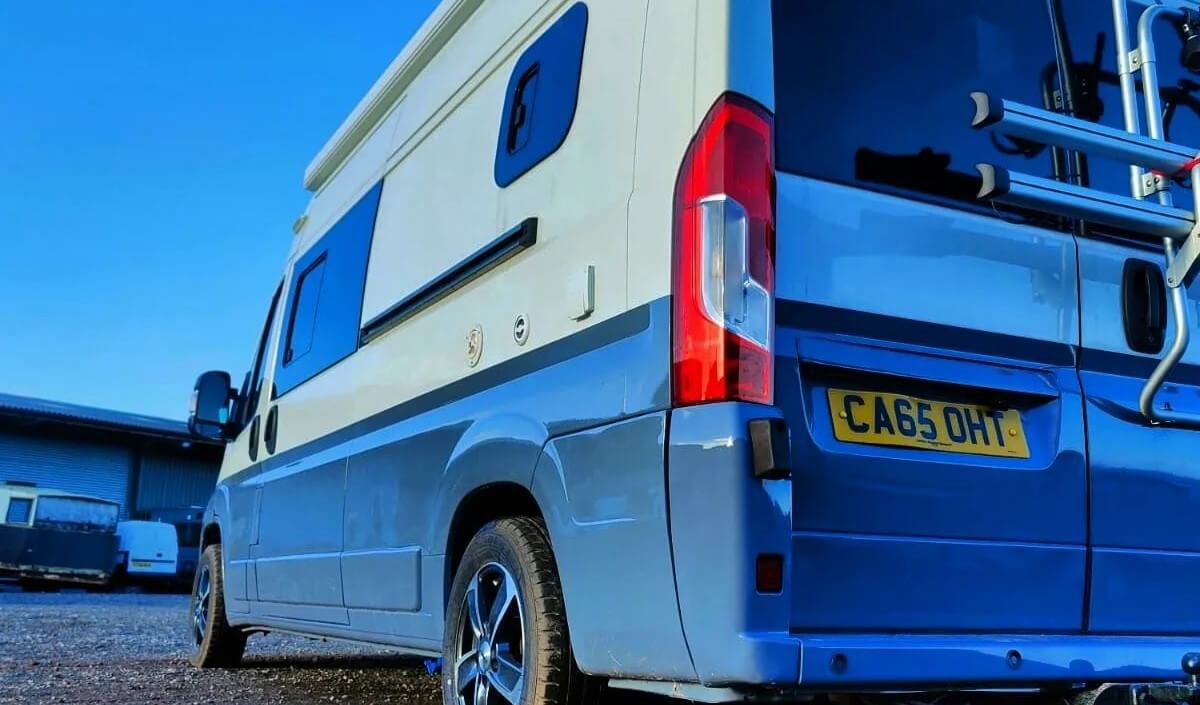
A campervan conversion is a process of turning a regular car or van into a campervan. Converting a van may involve changing the vehicle’s bodywork, installing a campervan conversion kit, or converting the engine.
There are many factors to consider when converting a van, such as the size and type of the van, the cost of the conversion, and the availability of specialist resources.
Should I buy a new campervan?
While owning a brand new, shiny campervan is desirable to many people, it isn’t cost-effective. The cheaper campers start at around £35,000 and only go upwards. You could buy second-hand if you’re happy to take on someone else’s van; it all depends on how much creative control you want when you buy the van.
Blog: Campervan conversion vs buying a campervan: what should you pick?
Who can convert a campervan?
DIY or professional?
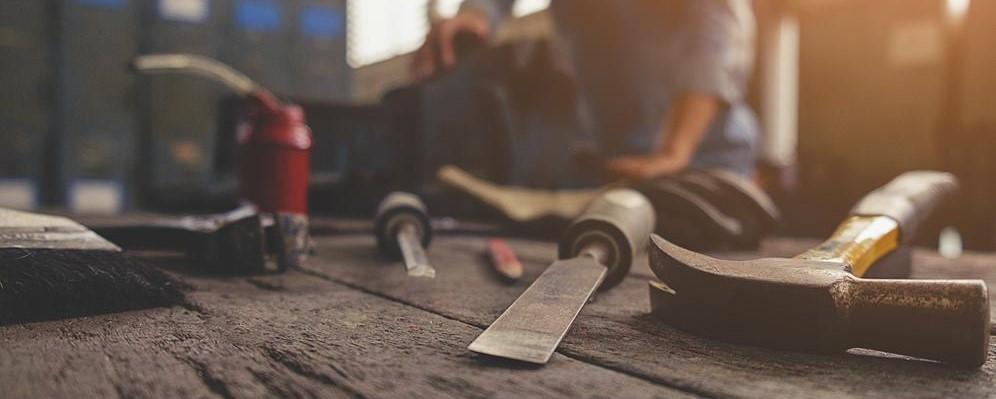
How valuable is your time? If you choose to convert your van yourself, it could take years depending on how much time you’ve got to do it.
If you have a lot of time to dedicate, you can reduce time and costs, but if you don’t it could take a while.
Conversely, a professional could get you up and running in 6-8 weeks, but it will cost more.
Campervan conversion specialist vs DIY conversion: What one should you choose?
Driving license requirements
If you’re going to drive the van, you need to have a valid driving license. Consider the maximum authorised mass of your van, as your license requirements may change:
- To drive a motorhome of up to 3.5 tonnes, you only need a category B or B1 license.
- To drive a motorhome with a MAM of 3.5-7.5 tonnes, you need a category C1 license.
- To drive a motorhome with a MAM of over 7.5 tonnes, you need a category C license.
A campervan conversion can be expensive, but it’s not impossible. Having said that, be realistic. Don’t attempt to convert a van without the financial resources and experience you need to do it.
Reclassification
Like a house, making changes to a van means you need to inform the authorities so they can identify the vehicle. You have to apply to the DVLA to reclassify your van. Reclassifying your van is free, but you need to ensure the van meets the DVLA requirements.
DVLA requirements for van conversion: How to make your van road legal
How are you going to use your campervan?
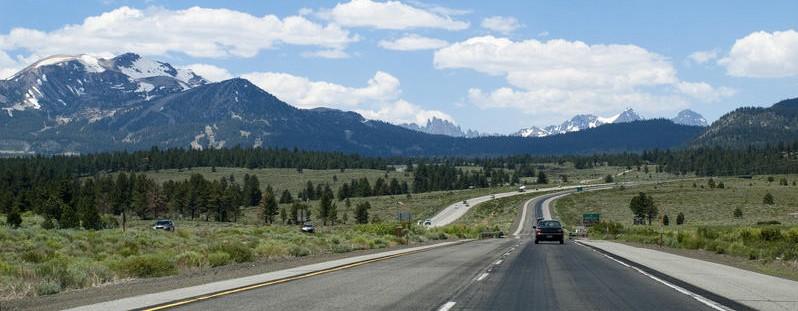
Before converting your van into a campervan, consider how you’re going to use the van.
Some people live out of their van permanently or semi-permanently, while others only use a campervan for leisure.
There’s also the possibility of putting your van out for hire, which is a potential income source if you only use your van every so often.
What you use your campervan for will affect the build you require, so get an idea before you commission a project.
How much does a campervan conversion cost?
Generally, costs start at £7,000+, and any costs after that will depend on what you want to achieve with your build. Bespoke builds will be more expensive, whereas a packaged build will be cheaper.
When calculating your costs, think about the money you need before the build starts, the conversion cost and the cost of running the van. It would be devastating to convert a van only to find out you can’t afford to run it.
Here are some of the things you should consider:
Pre-build costs
Van price
Remember to consider the price of the van before the conversion and whether you want the van price to factor into the cost. At Bhode Vans, we can even source the vehicle for you, saving you time and ensuring you get a quality, reliable vehicle.
Deposit
Employing a van conversion company to modify your van will require a security deposit to secure your booking. At Bhode Vans, we take a £1000 deposit, and the fun starts!
Build costs
As with most products and services, there are usually lower-range, middle-range and high-range price brackets. The price will reflect the quality and reliability of the materials. However, if campervan conversions are new to you, speak to a professional to specify what build type you like.
At Bhode Vans, we offer three builds:
- Bhode One and Bhode Two – standardised builds that allow us to keep costs down
- Bhode Artisan – help for DIY converters who want crucial jobs done professionally
- Bhode Bespoke – vans tailored to your exact style, needs and budget
Tools
Undertaking a self-build or doing parts of the project yourself will require access to some tools. You could try to save money by borrowing tools from friends and family, buying second or renting. Here are some examples of the tools you may need when converting the van yourself:
- Workbench
- Drill
- Jigsaw
- Circular saw
- Glues and tape
- Pipe cutter
- Handsaw
- Screwdrivers and other handheld tools
- Toolbox
- Spirit level
- Screws, nuts, and bolts
- Clamps
- Safety equipment
While this is not an extensive list, it gives you an idea of what self-build tools are required to begin.
Security equipment
Living out of your van will mean installing higher levels of security as your safety is paramount. Conversely, staying on secure campsites over a weekend and storing your camper in a secure location when you aren’t using it may lower your safety and security concerns. Here are a few items to consider for security purposes:
- Immobilisation system
- Fire blanket
- Jump leads
- Snow shovel
- Anti-slip mats
- Deadlocks
- LPG detector
- Blinds and curtains
- Tracker
- Dashcam
- Steering lock
- Clutch lock
- Gear clamp
- Gear stick lock
- Motion sensors
- Safe
How to keep your campervan safe
Kitchen
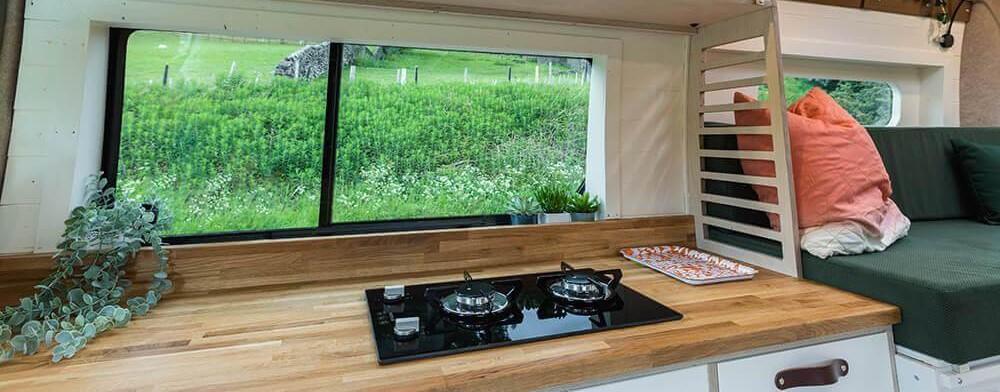
Using your campervan to travel means you need a method to store food, cook it and keep the area clean. Various options are available when converting a van, from using a simple bowl to installing a sink. Here are some of the items needed for a functional kitchen:
- Fridge/coolbox
- Stove
- Kitchen units
- Worktop
- Water containers
- Water pump
- Sink and waste
- Pipes and connectors
- LPG kit
Flooring and lining
Flooring prevents wear and tear in your van and makes it feel more homey and comfortable. Various flooring options are available, from real wood flooring to click tiles.
Consider what option suits your needs. For example, hiring your van out may require hardwearing flooring, whereas using it for weekend trips may mean lino can do the job.
Gadgets and electrical equipment
Electricity is vital when converting a van. Electricity allows you to charge any devices you require, and power any electrical equipment you use in your van. Here are some of the electrical items you need to buy for your van:
- Leisure batteries
- Leisure battery charger
- Fuses
- Master/kill switches
- Insulation tape
- Battery indicator
- Switches
- USB/12 v charging port
- Smoke alarm
- Hook up cables
- LED light bulbs
- Fuse box
- Ring DC to DC charger
- Inverter generator
Off-grid capabilities
If you want to cut costs or lower your carbon footprint, you could consider off-grid capabilities for your van, such as:
- Solar panels
- Water tank
- Water filter system
- Electric van
Bed
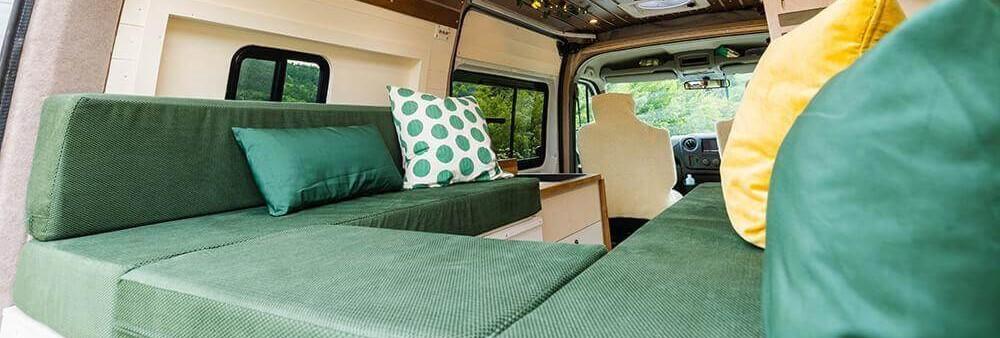
You need somewhere to sleep in your van, so consider what bed you want and how much it will cost. You need a structure for the mattress to fit into, plus the mattress itself. Think about the type of mattress you want as well; you could end up with a bad back if you buy cheap! Here are some options to consider when picking a bed:
- Fixed platform bed
- Drop down table bed
- Couch slider bed
- Bunk beds
- Fixed bed with incut extenders
- Lifted bed
Ventilation, insulation, and soundproofing
You need to ensure your campervan is well-ventilated, to keep the van smelling fresh, and to prevent condensation and humidity, which cause mould. Insulation is important for both hot and cold weather, so you need something versatile, and soundproofing is useful if you want a peaceful, quiet van. Here is some of the equipment you may wish to consider:
- Roof fan
- Vent
- Air heater
- 4-season insulation
- Ceiling
- Window covers
- Sound deadening mats
Bathroom
There are lots of options when it comes to installing a bathroom. If you don’t mind braving the outdoors, you can use an outdoor solar shower. However, if you prefer something that resembles a bathroom, you could get a proper shower and toilet installation. Here are some items to buy for a proper installation:
- Showerhead
- Shower tray
- Boiler
- Toilet
- Shower mixer
After costs
While these are all costs you incur after the build, always research them before you commission your build. There’s nothing worse than getting a nasty financial surprise when you’re trying to enjoy your new camper.
Soft furnishings
Pillows, blankets, artwork, and kitchen utensils. There are plenty of items you need to buy to make sure staying in your van is a pleasant experience, so think about what you need and what would be ‘nice-to-have’ to get an idea of how much you have to splash out on functional and decorative items.
Insurance
While insurance isn’t a direct cost of a van build, you should consider how much your insurance will cost.
For example, if it’s only you driving the van, your insurance will be lower. If you’re renting your van out, you’ll need to cover yourself and third-party drivers, as well as potential theft or damages, which will increase the cost.
Breakdown cover
Like insurance, you’ll want to consider what level of coverage you need for your campervan. Different people will need various types of cover.
For example, if you’re travelling to a local campsite, you may only need breakdown insurance that gets you home.
If you travel abroad, you need to ensure you have the right cover and look for cover that gives you alternate accommodation.
Maintenance and running costs
You can factor all the usual maintenance and running costs into your purchase, such as petrol, tax, MOTs and servicing. It’s worth getting an idea of how much you’ll pay to figure out whether running a campervan is affordable.
Rental agency fees
If you decide to rent your campervan, there are costs involved. For example, if you rent your campervan through Quirky Campers, they take a 21% cut of what you make from your rentals. However, you get benefits like a listing on a trusted site and a dedicated point of contact to manage your listing.
Can you start a business with a campervan?
Campervan conversions are a great way to make money on the side. If you want to start a business, you’ll probably need at least a few vans. When you convert a campervan, you get a vehicle you can use for business, leisure, or both.
At the very least, you should be able to make back the money you spent on the van. Here’s a graphic showing how much people make from campervan rentals per year:

Case Study: Transforming a Peugeot Boxer into Ophelia
Estimate your campervan conversion cost with Bhode Vans
If you decide you need a professional to convert your campervan, Bhode Vans can help you kickstart your journey. We’ll work with you to determine your budget, timeline and what build best suits you. We’ll even help you source a van. Visit our enquiry page to get started!

